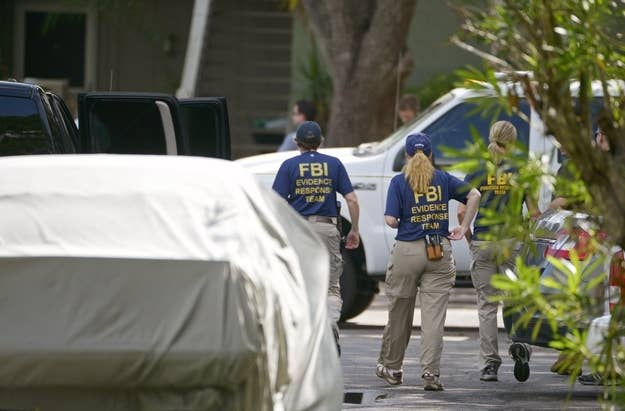
WASHINGTON — Advocates for the Chechen diaspora are downplaying fears in the community that Russian intelligence agents are using the FBI's investigation into the Boston bombing to intimidate and harass dissidents in the United States.
"Yes, some Chechens think the FSB has somehow influenced the FBI and other authorities to persecute some Chechens in western world," said Akhmed Zakaev, a Chechen separatist who leads the government-in-exile, in a telephone interview from his home in London. "People do think that."
"I don't think it's possible," Zakaev said. "I think it will not happen because US authorities, they don't just follow Russian security services."
Zakaev said the only Chechens he knew of in the U.S. who had been contacted by U.S. authorities had had some relationship with the suspected bombers Dzhokhar and Tamerlan Tsarnaev, such as Musa Khadzhimuratov, a rebel who had served as Zakaev's bodyguard and who now lives in New Hampshire.
"Musa Khadzhimuratov, I know him," Zakaev said. "I talked to him after this information came out, after the FBI questioned him. I said the same thing to him. I would be very surprised if they didn't question him. Of course the FBI should question him and ask him why and when he met [Tsarnaev] and ask him what relationships they have."
Zakaev said he had spoken with Khadzhimuratov, who told him that "they just asked him about Tsarnaev, when he met him, and what relationship they had. They didn't accuse him of any crime. Simple questions." Zakaev is more concerned about the questioning of Ibragim Todashev, a former friend of Tsarnaev's who was submitting his confession to committing an unsolved 2011 Waltham triple murder when he suddenly became violent and was shot by an FBI agent. "Very serious crime what they accused this guy," Zakaev said. "They should take him to police station and question him there. Why they didn't do it, I don't know."
Khadzhimuratov's social interactions with Tamerlan Tsarnaev had resulted in repeated questioning from the FBI recently, who also searched his house. The incident prompted him to release a statement avowing his love for the United States and characterizing his contact with Tsarnaev as minimal.
"I am sincere in saying that America has become a new, beloved home for me and my family, and we appreciate the freedom and peace this country gives us," Khadzhimuratov wrote. "I am sure, the FBI knows by now that I have nothing to do with the terrible act in Boston."
Other advocates for the Chechen community say the only people they know have been questioned are those who had ties to the Tsarnaevs.
"I can say firmly that no ethnic Chechens I know in this country have been harassed or even contacted," said Almut Rochowanski, the director of the Chechnya Advocacy Network. "As far as I can tell, the only ones who have been interviewed had fairly strong personal connections with the Tsarnaevs."
In a story about the FBI interrogation of Todashev, the New York Times threw in an intriguing paragraph at the end.
"Some advocates for the Chechen community have expressed concern that Russian intelligence officers might be steering the F.B.I. to target Chechens in the United States who are hostile to Russia but have nothing to do with terrorism," the reporters on the story wrote. (The paragraph has been removed from the online version of the story, which was published in the May 23 edition of the paper.)
But a Russian tip about Tsarnaev himself was only lightly investigated, and there are barely any Chechens (less than a thousand, and fewer still who were important to the separatist movement) in the United States.
Rochowanski said the sentence from the Times article "can only refer to two statements: one by the guy Kahdzhimuratov [sic], the one in NH, who said something along those lines about himself," Rochowanski said. "And two, Glen Howard from the Jamestown Foundation in DC, an old Cold War outfit that was very cozy with the original separatist crowd and is probably likely to see the FSB behind everything."
Howard, of the Jamestown Foundation, said he thought there was something to the idea that the FSB could be influencing the FBI's choice of Chechens to interrogate.
"There is a concern that this might be happening because the guy in New Hampshire was a former bodyguard for the Chechen dissident in London, Akhmed Zakaev," Howard said. He said there could be a connection to the recent high-profile round of spy games in Moscow.
"The more the FSB cooperates with the FBI on this investigation, when they are disclosing the names of CIA station chiefs in Moscow, they might start giving the FBI false information on Chechens it dislikes to get them returned to Russia for more show-trials," he added.
Still, Rochowanski said there are simply not very many Chechens in the United States who would have to worry about that in the first place. "So it's possible they are talking to other separatist figures that live in the US — although there are really only a handful and only one of them could be considered 'senior,'" she said.
"The others that have been approached by law enforcement seem to have only in common that they knew the older Tsarnaev fairly well," she said.
A spokesperson for the FBI did not have immediate comment.
